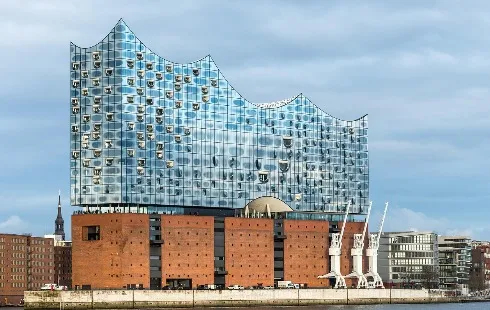
Trump's Tariff War: China Urges Immediate Repeal of Tariffs Amid Countermeasures
Section: News
For decades, Egypt has grappled with a high birth rate that poses significant challenges for the most populous Arab nation. In response, President Abdelfatah al-Sisi has initiated extensive construction projects, including the development of a new capital city. However, this ambitious project remains largely uninhabited.
The newly established capital, situated approximately 60 kilometers east of Cairo, boasts impressive structures, including Africa's tallest skyscraper and the largest cathedral in the Middle East. Despite these achievements, the streets are eerily quiet, with only a handful of officials and support staff present amidst the monumental architecture.
Construction of this megaproject began a decade ago, with the aim of addressing the long-standing issue of overpopulation in Egypt. Cairo, home to over 20 million residents, is one of the most densely populated cities globally, contrasting sharply with the stillness of the new capital, where traffic noise and crowded streets are replaced by silence.
President Sisi has identified the high birth rate as a fundamental cause of Egypt's ongoing economic crisis. Last fall, he warned of an impending disaster if population growth remains unchecked. Unlike many Western nations facing aging populations, Egypt is experiencing rapid growth, resulting in a youth demographic with insufficient job opportunities and housing.
Demographic expert Ayman Zohri acknowledges the validity of Sisi's concerns. Meeting in a bustling Cairo restaurant, Zohri points out that discussions about overpopulation date back to as early as 1936. Family planning initiatives were first introduced in Egypt during the 1960s, but these efforts have historically fallen short of their goals. He estimates that without these programs, the population could be as much as 15 million higher today.
Today, Egypt's population exceeds 107 million, driven partly by conservative societal values and the influence of radical ideologies that encourage large families. Official statistics indicate that the average Egyptian woman has approximately 2.85 children. If this trend continues, projections suggest that by 2050, Egypt could have around 160 million inhabitants.
High birth rates pose challenges, particularly as the government allocates insufficient resources for education and healthcare. This lack of investment exacerbates the issue, leading to cycles of poverty and further population growth in lower-income households. While overpopulation is a significant factor in the economic landscape, Zohri argues that it is not the sole reason for Egypt's economic difficulties.
Under Sisi's administration, approximately forty new urban developments have emerged across the country. The new capital represents just one aspect of a broader urbanization strategy aimed at alleviating the pressures of overcrowding in established cities. Currently, about 97% of Egypt's population resides on just 4% of its land, primarily along the Nile River.
Despite the rationale behind these new urban centers, few Egyptians are moving to them. For instance, New Cairo, intended to accommodate five million residents, has attracted only around 300,000 people to date. Urban planner Nicholas Simcik-Arese suggests that these new cities serve not only as practical solutions but also as a means for Sisi to solidify his governance by transforming the desert into productive land.
Furthermore, contracts for these developments are predominantly awarded to military-owned enterprises, reinforcing the military's control over the Egyptian economy. Critics argue that this military dominance contributes to economic stagnation. In certain areas of Cairo, vacancy rates for housing can reach as high as 50%, suggesting that renovating existing properties might offer a more effective solution to housing shortages.
Simcik-Arese also notes the political implications of relocating governmental functions to the new capital. By distancing the leadership from the historic center of Cairo, where significant protests against former President Hosni Mubarak took place, the government may be attempting to mitigate potential unrest.
As construction continues, the new capital and its surrounding urban projects remain largely deserted. Meanwhile, the government operates as if these developments will solve Egypt's pressing challenges, even as a significant portion of the population experiences mounting frustration amidst economic hardship.

Section: News

Section: News

Section: Politics

Section: News

Section: News

Section: Politics

Section: Arts

Section: News

Section: News

Section: Business

Health Insurance in Germany is compulsory and sometimes complicated, not to mention expensive. As an expat, you are required to navigate this landscape within weeks of arriving, so check our FAQ on PKV. For our guide on resources and access to agents who can give you a competitive quote, try our PKV Cost comparison tool.

Germany is famous for its medical expertise and extensive number of hospitals and clinics. See this comprehensive directory of hospitals and clinics across the country, complete with links to their websites, addresses, contact info, and specializations/services.

Join us for the presentation of Dr. Felix Leibrock's latest book, Göttliches fühlen, where he explores the emotional experience as a pathway to happiness. This thought-provoking work addresses the challenge of believing in a higher power amidst overwhelming suffering. Can the divine be felt...
No comments yet. Be the first to comment!